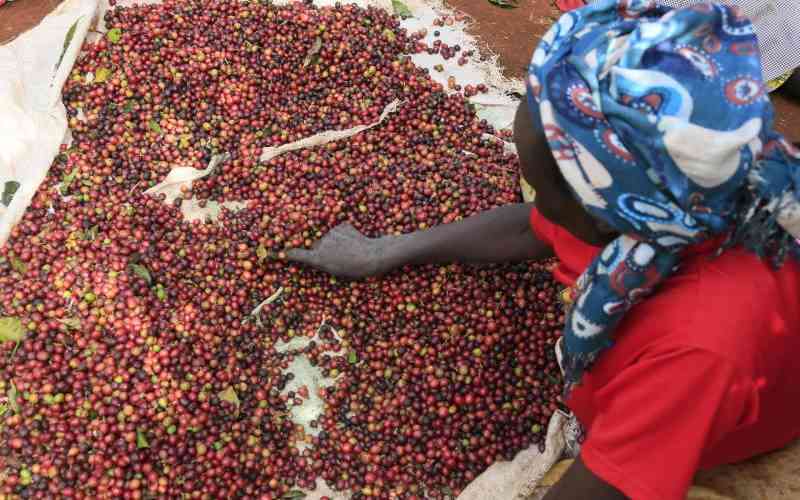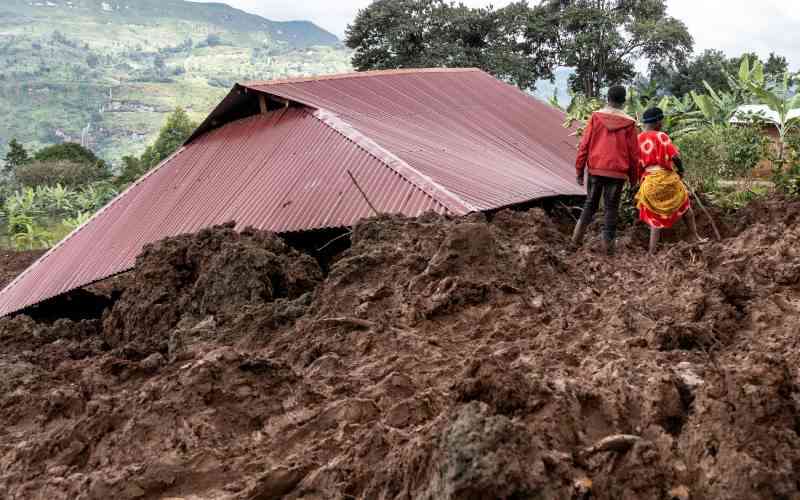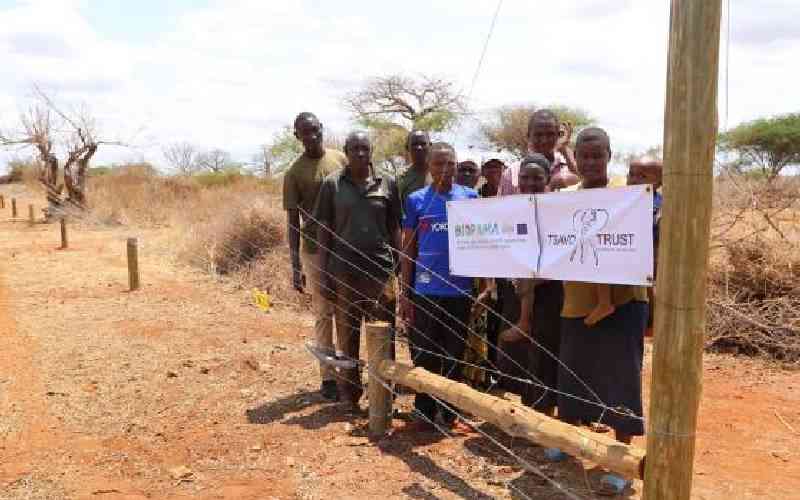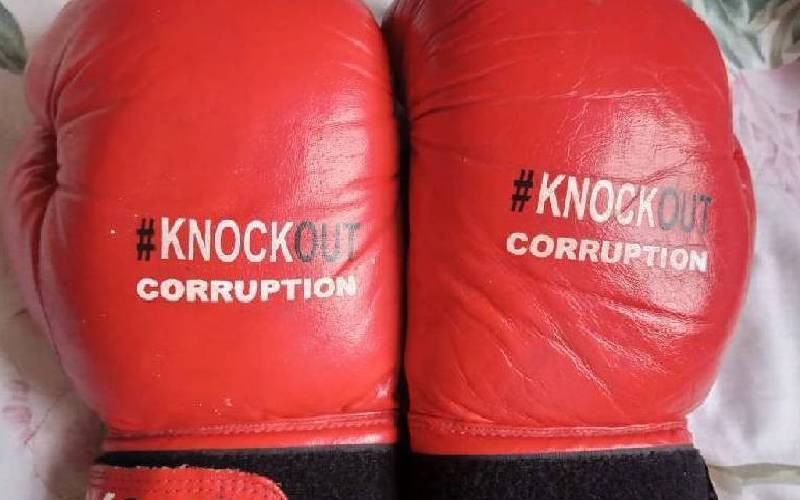By Kenneth Kwama
A local wines and spirits manufacturer has issued a retrenchment notice to all its workers and is preparing to shut down next month.
But even as the company weighs the hard options, the adverse effects fuelled by frustrating tax regime did not spare other key players in the Sh10 billion wines and spirits industry. The latest development is a damning vindication that the sub-sector could be headed for turbulent times, owing to last month’s massive tax increases on malted beer and spirits.
The price of beer also went up, following the Government’s late amendment to the 2008 Finance Act, which increased excise tax on non-malted beer from Sh36 to Sh45 a litre. However, the impact has been felt more on wines and spirits.
 |
Trade Assistant Minister Omingo Magara during a recent tour of Kwal. Photos: Reuters and Tom Maruko/Standard |
"It is meant to standardise the taxation regime for fortified wines and spirits by matching them to world standards and is unlikely to change," said the official.The revised tax regime has seen local manufacturers’ tax burden rise from an average of Sh200 per litre of concentrated spirit to Sh674.80, forcing it to increase its retail prices by more than 120 per cent in the low-end market, a segment that is critical to the industry survival.
"The increase has pushed the prices of the 205 ml package — a favourite of the low-end spirit consumers — to about Sh165, up from an average of Sh70. As a result, the sales in this category have dropped by up to 80 per cent across the board," said a highly placed source that requested not to be named.
Excise Duty
The current method of calculating excise tax referred to as ‘rate per litre’ requires manufacturers to pay excise duty while purchasing concentrated spirit. As such, local manufacturers are required to pay taxes when buying spirits from the dealers.
The new tax regime also requires manufacturers to charge additional excise duty on the final product, at the rate of Sh280 per litre, which translates to Sh674.80 for 2.41 litres of the finished product minus the initial excise duty paid, which was Sh200 per litre.
Overall, the new measures have increased excise duty on one litre of the final product by Sh474.80 or about 237 per cent.
The country stands to lose much if companies like EABL, which owns manufacturing entities in Uganda and Tanzania, decide to take advantage of the fairer East African Community tariff structure, to relocate their businesses to the neighbouring states, which have lower tax rates.
Currently, the disparity in taxation of spirits is a big incentive for smuggling products into the country either as bulk spirit or finished products. It has also encouraged cross border smuggling since spirits are now much cheaper across the borders.
Stay informed. Subscribe to our newsletter
Unaffected
Despite the massive hit on the low-end segment, high-end consumers whose gobbling habits start from 750ml bottles have remained largely unaffected and are still consuming as they were before the new tax increment was introduced.
The increase has seen the prices of some popular whiskies, brandies and vodkas skyrocket beyond many ordinary citizens’ ability.
However, imported brands such as Johny Walker, Amarula Cream and Famous Grouse are now much cheaper than their locally manufactured competitors in the high-end market. As a result of the tax impasse, most local manufacturers have suddenly found themselves with huge inventories of un-sellable stock of wines and spirits, worth hundreds of millions of shillings, while a number of industry players have suspended production as they await intervention of the new tax measures.
The other threat to business, Masila reckons, is the fact that illicit brewers are having a field day packaging spirits in plastics, and dumping them in the market.
A 205ml package of the illicit spirits is retailing at between Sh35 to Sh50. This is highly discounted, as opposed to established local brands.
"Our fear is that these people are taking over the entire low-end segment of the market. They operate informally and addresses for their operations are fully disguised.
"Even if you picked the products in the market you would never trace them back to the manufacturer," says Masila.
According to Nabak, most of these traders sell smuggled spirits, which are disguised as "for export", but never get out of the country.
Other risks
"Besides posing serious health risks to consumers, these illicit spirits are also pushing formal manufacturers out of the low-end business. The whole situation should be reviewed, because these products do not conform to any standards and are not regulated and don’t pay taxes," explained Masila.
A testimony to the threat posed to formal manufacturers by the thriving illicit spirits business is the massive drop in sales volumes. FJ has obtained documentation showing that Nabak had started getting apprehensive about the then planned tax increases, and the effects on the low-end market, as early as last October.
In a letter addressed to Mr John Njiraini, Commissioner of Domestic Taxes, Large Taxpayers Office at the Kenya Revenue Authority (KRA) and dated October 6, 2008, the association told the commissioner that the cheap brews were already taking over the low-end market.
"Majority of these manufacturers are not registered with KRA and they should not be dealing with alcohol products.
Since these products are cheap, they enjoy a greater market share to the disadvantage of the formal players not to mention the loss of Government revenue in unpaid taxes," said Nabak.
 The Standard Group Plc is a
multi-media organization with investments in media platforms spanning newspaper
print operations, television, radio broadcasting, digital and online services. The
Standard Group is recognized as a leading multi-media house in Kenya with a key
influence in matters of national and international interest.
The Standard Group Plc is a
multi-media organization with investments in media platforms spanning newspaper
print operations, television, radio broadcasting, digital and online services. The
Standard Group is recognized as a leading multi-media house in Kenya with a key
influence in matters of national and international interest.
 The Standard Group Plc is a
multi-media organization with investments in media platforms spanning newspaper
print operations, television, radio broadcasting, digital and online services. The
Standard Group is recognized as a leading multi-media house in Kenya with a key
influence in matters of national and international interest.
The Standard Group Plc is a
multi-media organization with investments in media platforms spanning newspaper
print operations, television, radio broadcasting, digital and online services. The
Standard Group is recognized as a leading multi-media house in Kenya with a key
influence in matters of national and international interest.








